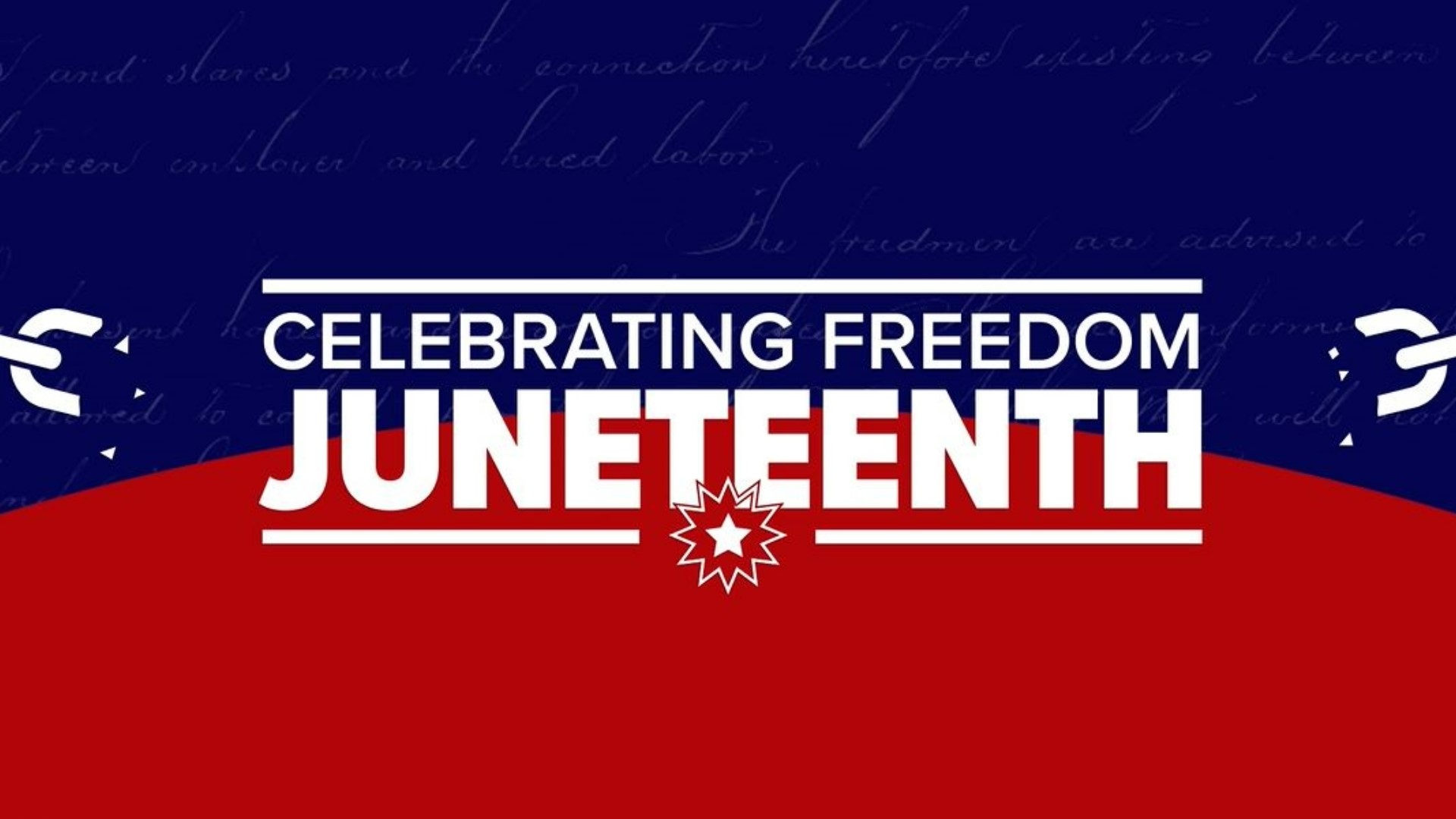CHARLOTTE, N.C. — Juneteenth commemorates the emancipation of enslaved Black Americans in the United States. Specifically, it denotes when Union soldiers arrived to take control of Galveston, Texas in 1865 and informed enslaved persons of their newfound freedoms.
Since its inception, the holiday has been uniquely celebrated by different groups of the African community.
In West Charlotte—a historically Black neighborhood—Juneteenth was celebrated with food, music laughter, and progress.
“The purpose of coming together today is to commemorate our ancestors and what they had to go through, but also to unify our community to educate our community," said Alesha Brown, "so that we will become better and stronger, more educated about the systemic, racial and social and justices that happen to us every day."
Brown is the founder of the local community outreach group known as For The Struggle, which organized the festival. The organization's mission focuses not just on community initiatives, but also on policy reform and legal action to fight systemic issues of racial and social injustice.
At Camp North End, hundreds came out to support the Durag Fest. It was a place to celebrate the culture of Black Americans.
"This festival, in a way celebrates all things Black, gaudy, and ghetto before they're appropriated by much richer people," said Dammit Wesley, who founded the celebration.
Durags are head coverings that are used for both practical purposes and to make fashion statements in the Black community.
“It gives a certain stereotype, right? And I don't believe that, I believe that you can express yourself however you want to, there is no right or wrong way to be Black," said Wesley. "And I just think that showing up publicly in a durag is one of the loudest most unapologetic ways you can celebrate your blackness on a holiday like this."
In Uptown, the International Capoeria School celebrated Juneteenth with an African Brazilian festival. The group showcased movements from the Afro-Brazilian martial art style started by enslaved Africans who were brought to Brazil.
“They came over from Africa during the Transatlantic Slave Trade, they were using Capoeria as a way to form sort of a resistance to get what was happening, and also as a way to preserve the culture," said Reba Bowens, who teaches the martial art.
Hundreds of years later, the practice of Capoeria continues.
"This was something that was started from a place of oppression that was used to liberate and free people," Bowens said. "And still, today is still practiced to do that. So when we go into different communities and different spaces, you'll see that everybody in the room does not all look the same, which is beautiful."
The different celebrations of Juneteenth show the diversity and complexity within the Black community. Music, art, and community are at the core of the festivities as people reflect on that fateful day on the Texas coast.
Contact Shamarria Morrison at smorrison@wcnc.com and follow her on Facebook, Twitter and Instagram.

